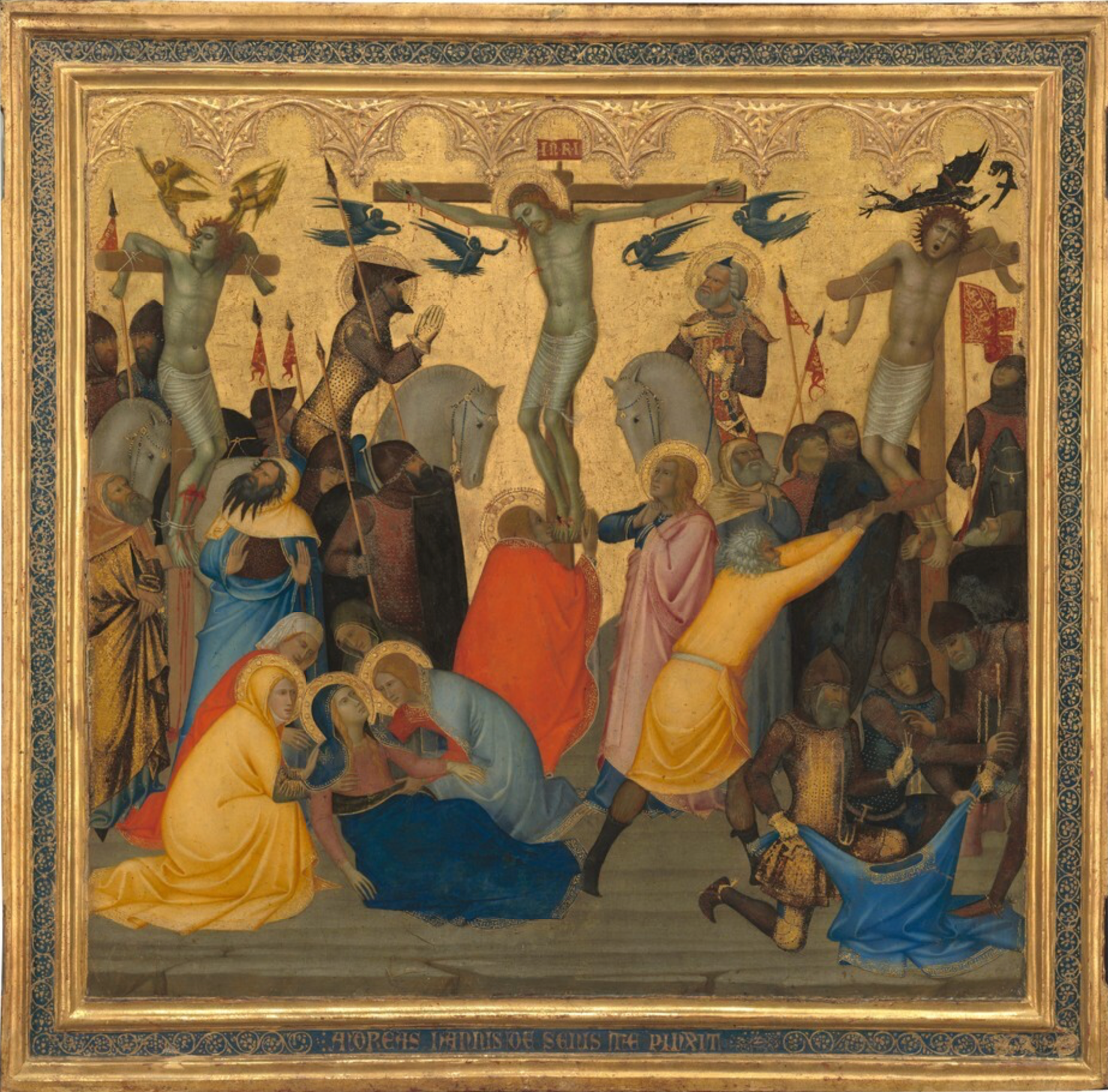Good Friday
Homily by Abbot Brendan

By ancient tradition St John’s Gospel is read today. St John sees the Cross of Jesus not primarily as a place of defeat or agony, but as the moment of glory, exaltation. Our Lord says: “It is finished” meaning, “It is accomplished.” It is not tragedy, but triumph—not humiliation, but exaltation. At a human level the Cross is a terrible thing, but John lifts our gaze to see the love with which Jesus suffered. And so the Cross becomes a thing of beauty, and we can call this Friday ‘Good’. “God so loved the world, that he gave his only Son” – that is what it is about. And in a perspective different from the other evangelists, John sees the church born from the side of Christ. From his pierced side flow “blood and water” (John 19:34)—symbols of the Eucharist and Baptism. The birth of the Church from his side, like Eve from Adam. What we have witnessed is a passion of love.
On each reading of the Passion a new detail attracts our attention. For me it is the soldiers at the foot of the Cross. In Jerusalem, at the side of the Via Dolorosa, is a place traditionally identified as the Stone Pavement, (the Lithostrotos), a section of the forum. On the ground some Roman soldiers had scratched games on the stone pavement. It is possible to think of soldiers distracted from their duties, absorbed in their games as Jesus stands before Pilate. “Behold the Man.” He says, “Behold your King.” They turn back to their games.
We hear that at the foot of the Cross, of how the soldiers took the Lord’s tunic and threw dice. “Let us not tear it,” they say, “but cast lots for it to see whose it shall be.” Think of it. While Christ is dying above them—his body broken, his heart poured out—they gamble for his clothes.
They’re not raging. They’re not shouting. They’re just… doing their job. It’s another crucifixion. Another body. Another tunic. They are disinterested. This is what theologians have called the banality of evil. It doesn’t always look like monstrous cruelty. Often, it looks like indifference. Like routine. Like shrugging your shoulders while someone suffers right in front of you.
The soldiers had grown used to death. Used to cruelty. They can no longer see the human being in front of them—let alone the Son of God. And so they become blind, callous, disconnected. That’s how evil thrives—not always by hatred, but by the absence of compassion and even the lack of curiosity about the wellbeing of another.
We live in a very difficult world, and it is easy to feel that those in power are just playing games, throwing the dice to see what they can get out of it. Sending soldiers to war needs only a casual signature without thought for the consequences, the suffering it might bring. This world has its tyrants, its power-hungry princes. We can point the finger at the Herods and the Pontius Pilates of this world. But then that might distract us from seeing our own hearts grow cold. These soldiers are just there, doing their duty, not thinking too much about anything, playing their games. There is the danger, of not stopping to think of the small ways we perpetuate suffering.
How easily we dehumanise others. We walk past people who suffer. We dismiss voices we don’t want to hear. We divide people into categories, arguments, and statistics. The poor, the prisoner, the migrants, the unborn, the dying. All too easily, we stop seeing the person and start seeing the problem. We cast lots over human dignity.
There is a further line in the Gospel that stands out: “But the tunic was seamless, woven in one piece from top to bottom.” The Fathers saw it as a symbol of Christ’s own wholeness—and of the unity of his Church. The soldiers were ready to divide it, to tear it up. But they pause. “Let us not tear it.”
Perhaps we are being asked the same. Not to tear what God has made one. Not to divide what Christ has joined. Not to look at another human being and see something disposable, dispensable, or distant.
Good Friday is not only about what happened then—but what happens now. Now, Christ is crucified in the suffering of the innocent. Now, he is stripped bare by hatred, mocked in injustice, and left to die in the coldness and indifference of human hearts.
And now, we are the ones at the foot of the Cross.
“Behold the Man.” Behold our King.”
Will we stand with him—or will we cast lots?
Will we take his love for real – or play games.











